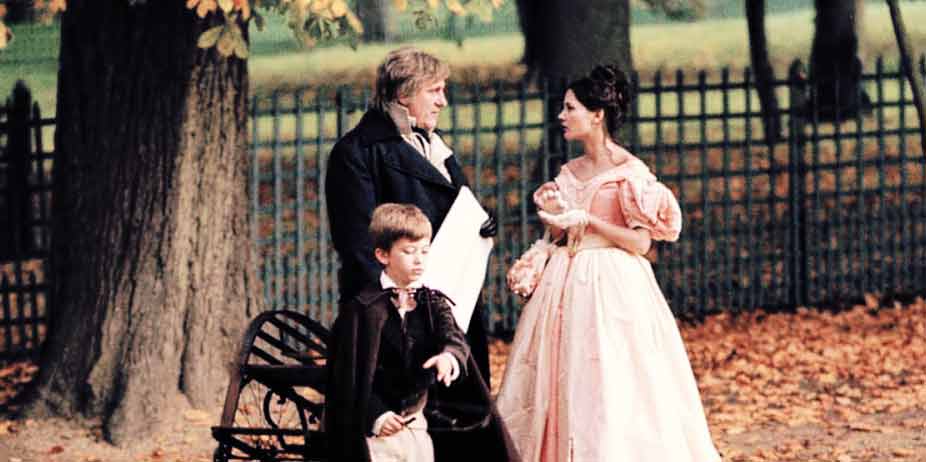 Les
Misérables (2000)
Les
Misérables (2000)
Less well-known than its Hollywood predecessor is the television miniseries Les Misérables, starring Gerard Depardieu and John Malcovich. Although more family-appropriate than the big screen version, this production is harder to follow, moves at a slower pace, and concludes on a bittersweet note. My preference is for the other film, but I can't gloss over the qualities of this one.
Les Misérables is the tale of a convicted felon, Jean Valjean (Gerard Depardieu). Jailed for stealing a loaf of bread from a shop window, he attempts escape many times and is finally released after twenty years of hard labor. As he travels through the French countryside to report to his Parole officer, all save the Bishop turns him away, fearful of his yellow passport, which marks him as a convict. In the night, Valjean takes the Bishop's silver spoons and slips away but is caught at daybreak by a passing patrol. Once they return him to the Bishop's home, the clergyman informs them the silver was a gift to Valjean. The convict is released. The Bishop tells Valjean that his soul is been redeemed from darkness and now he must turn to God.
The years pass and Valjean's former guard, Inspector Javert (John Malcovich), is sent to the French countryside to act as the local head of police. His interest in the town's mayor leads him to suspect his true identity. Meanwhile, Valjean shows a kindness to a local woman forced into prostitution to survive (Charlotte Gainsbourg). This forever changes all their lives.
Les Misérables spans many years, from Valjean's imprisonment to the rebellion in France and Cosette's married life. It is ultimately a story of forgiveness, and the power of God's grace to transform a man from sin to redemption. With time for character development, this adaptation is much closer to the novel than most retellings of the story. It explores the side plot with Eponine and the Thenardiers. It also sticks to the original ending of the novel, which is sad but touching, and Javert's fate is less cinematic. It handles Fantine's decent into prostitution more delicately but hasn't the intensity between the leads that the roles demand. John Malcovich's Javert is much too laid-back and unemotional. But Virginie Ledoyen's Cosette is a vast improvement on the film's. She also has a far more beautiful wardrobe.
Its faults are that it can be confusing to those unfamiliar with the novel, and it's almost impossible to find in the American market. But it's well worth a watch if you ever run across it on cable television.
Sexual Content:
References are made to prostitution.
Language:
Mild profanities and insults.
Violence:
Some war violence; men and women are shot and killed in
the midst of a revolution.
